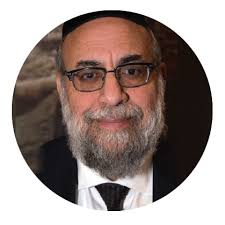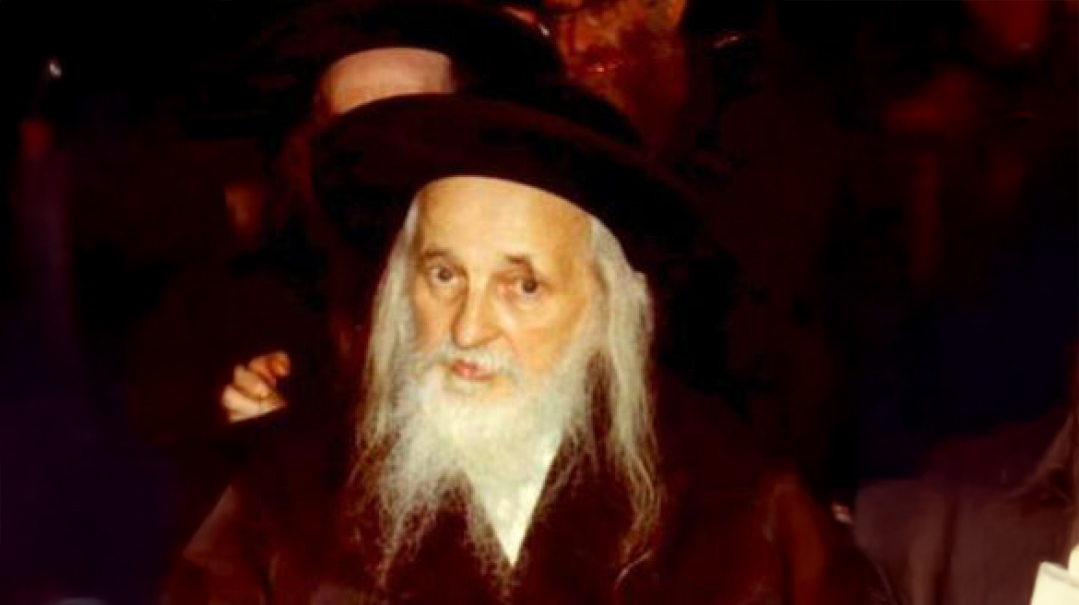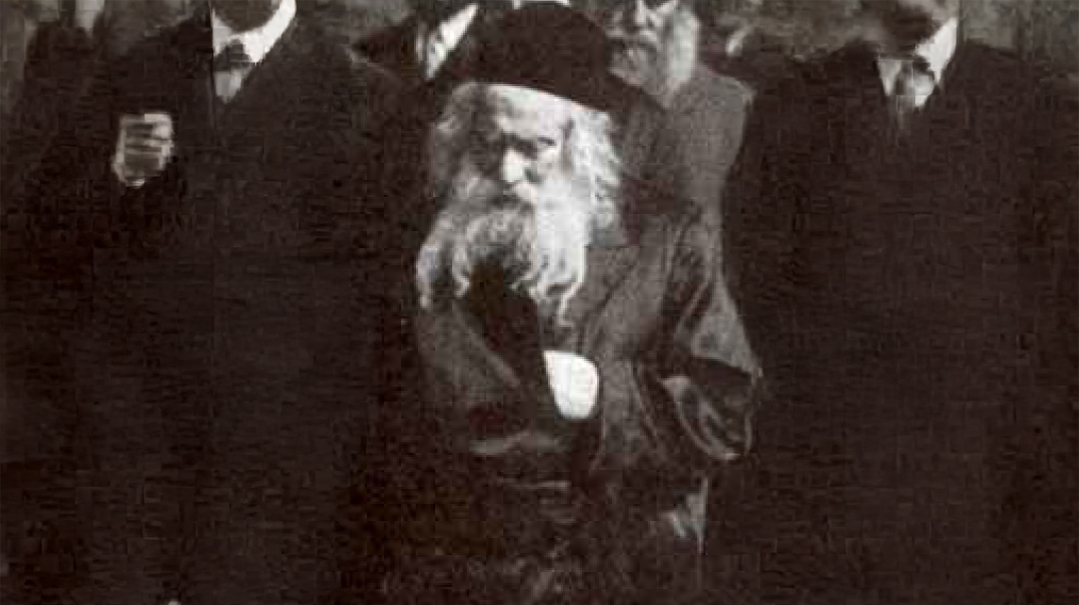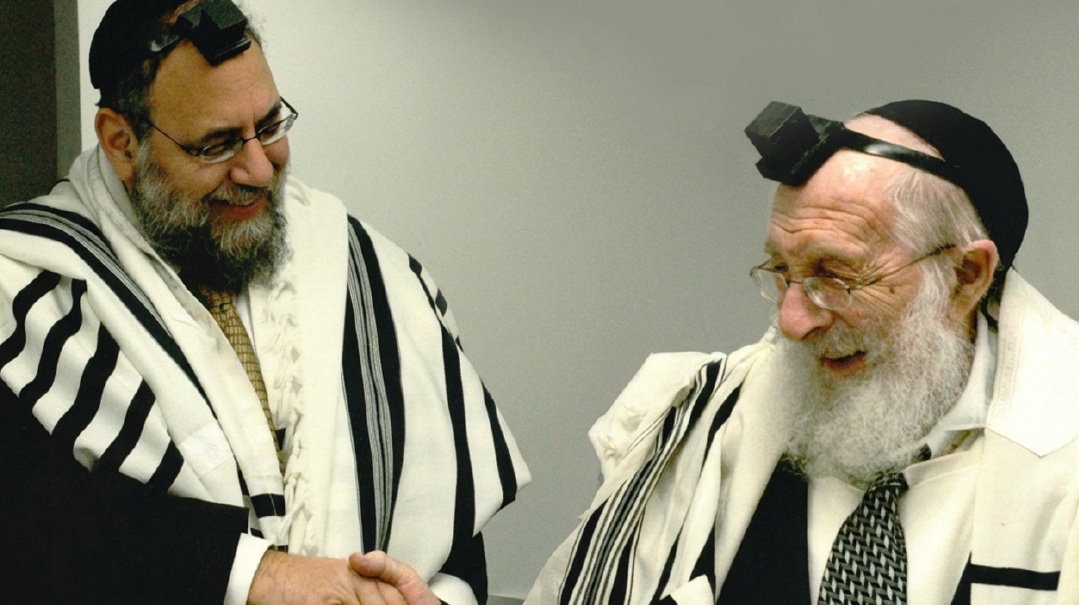No Room for Despair or Despondency

The lesson the Rosh Yeshivah taught us when coping with his tremendous loss was perhaps the greatest lesson of all
AS
we read in the recent parshiyos, even our Avos Hakedoshim struggled with the loss of a loved one. Avraham mourned for his beloved wife Sarah, and Yaakov could not be comforted upon the loss of Yosef, his favorite son.
Losing a spouse is particularly painful, especially after being married for more than three quarters of a century, as the rosh yeshivah Rav Chaim Pinchas Scheinberg ztz”l and his Rebbetzin Basya were. The relationship between them was legendary, and served as a quintessential example of true shalom bayis.
We all heard the stories of how the Rosh Yeshivah would return home on Motzaei Yom Kippur, after spending a whole day in yeshivah, and take a piece of cake wrapped in a napkin out of his pocket as he said to the Rebbetzin, “Look what I brought you.”
I remember one particular incident when I came to pick up the Rosh Yeshivah to take him to a parlor meeting for the yeshivah, where he would be speaking. I arrived a bit late and we had quite a distance to travel, but the Rosh Yeshivah insisted that we not leave yet, because the Rebbetzin was expected to arrive soon, and, he said, “She will be so happy to see you, let’s wait so she can feel good before we leave.” The 20-minute wait was worth it: The pleased look on the Rebbetzin’s face when she arrived was matched only by the pure joy on the Rosh Yeshivah’s face as he saw how happy his wife was.
As my father z”l aged, he wanted to keep up his annual trip to Eretz Yisrael (the Agudah’s annual yarchei kallah was his favorite venue) but my mother, may she live and be well, did not let him travel by himself any longer. And so, I was fortunate to have gone on a few of these annual trips with him. One of the first prerequisites was a visit to the warm home of the Rosh Yeshivah and the Rebbetzin, and it was often the highlight of our trip.
Unfortunately, on our last trip together, we arrived in Eretz Yisrael just one day before the Rebbetzin’s petirah and instead of our annual visit with her, we escorted her on her final journey and accorded her kavod acharon. I remember that we went the very next day to be menachem avel the Rosh Yeshivah, who was sitting very sadly and quietly. When we walked in, the Rosh Yeshivah perked up and said to my father, “Avraham, do you remember the early days with the Rebbetzin?” (My father had been a very close talmid of the Rosh Yeshivah in the 1940s and 50s when he was serving as the mashgiach in Yeshiva Chofetz Chaim, in Williamsburg at the time, and he also had a very special relationship with the Rebbetzin.) My father then shared some personal stories of summers with the Rosh Yeshivah and Rebbetzin, and her comments when my father, a soon-to-be-chassan, brought his future kallah to them for approval. The Rosh Yeshivah listened carefully and a small smile appeared on a face filled with tza’ar at his great personal loss.
Everything the Rosh Yeshivah did was intended to show his talmidim how every event in one’s life has to be lived with the Torah’s approach to that event, be it joyous or tragic. The lesson the Rosh Yeshivah taught us when coping with his tremendous loss was perhaps the greatest lesson of all.
A few months after the Rebbetzin’s petirah, the yeshivah dedicated its annual dinner in Brooklyn to the memory and legacy of the Rebbetzin. (I am indebted to my good friend, Rabbi Yissachar Weiner, a grandson of the Rosh Yeshivah, who reminded me of the significance of the Rosh Yeshivah’s words at the event.)
As the Rosh Yeshivah rose to speak, every one of us in that room wondered what would he say, how would he go on, where he would find the strength to continue his life’s work. And then the Rosh Yeshivah showed us exactly how. He said, “Dovid Hamelech says in Tehillim (23), ‘shivtecha umishantecha heimah yenachamuni,’ ” which the Rosh Yeshivah explained as follows: “At times, Hashem uses His staff (shivtecha) to strike a person, but at the same time, He uses mishantecha, His sustaining cane, to hold us up. There is nechamah in that there is no room for a Yid to be in despair or despondent.” The Rosh Yeshivah said this at the age of 99 years old. What an incredible lesson in tzidduk hadin.
Every person who had suffered a loss, whether a talmid of the Rosh Yeshivah or not, was not only given a tool to help cope with the loss, but also the ability to move forward. What an incredible legacy for Klal Yisrael.
(Originally featured in Mishpacha, Issue 1051)
Oops! We could not locate your form.







